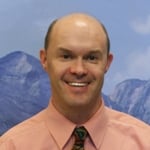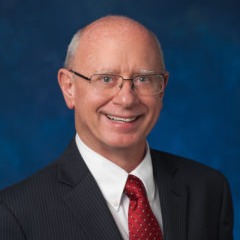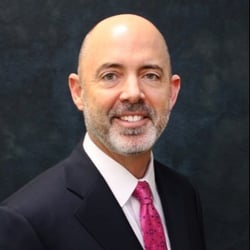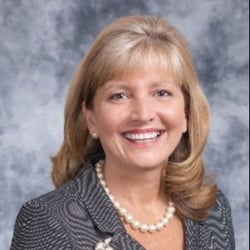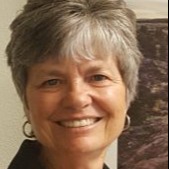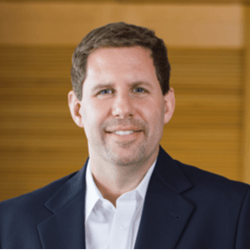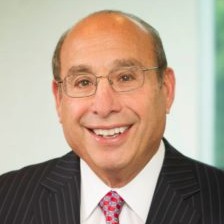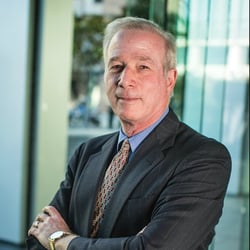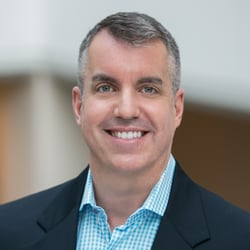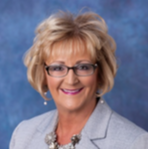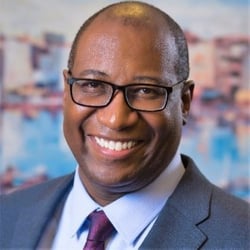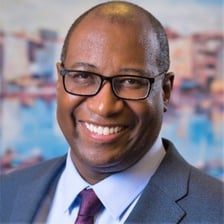 Joe Wilkins, MBA, FACHE, is the Senior Vice President, Chief Transformation Officer at Atlantic Health System. As a healthcare industry executive, Mr. Wilkins has repeatedly driven significant organizational transformations. Mr. Wilkins has dedicated his career to executive management and boardroom leadership within healthcare organizations. He strives to make a difference within our communities, to advance healthcare equity, innovation and transformation, while expanding access, affordability and improving the quality of healthcare and mental health services.
Joe Wilkins, MBA, FACHE, is the Senior Vice President, Chief Transformation Officer at Atlantic Health System. As a healthcare industry executive, Mr. Wilkins has repeatedly driven significant organizational transformations. Mr. Wilkins has dedicated his career to executive management and boardroom leadership within healthcare organizations. He strives to make a difference within our communities, to advance healthcare equity, innovation and transformation, while expanding access, affordability and improving the quality of healthcare and mental health services.
Key Takeaways
- Due to the disruption in the healthcare industry today, health systems must quickly adapt, transform, and innovate to improve products and services.
- The drive toward value-based, high-quality care starts with bringing together cross sector stakeholders to implement partnership incentives tied to rewarding only the healthcare activities of true value.
- Encouraging collaboration starts with developing common ground, values, and trust, and building that common purpose into all parties’ long-term strategic plans to enable successful collaboration to move forward into action.
TLD Group: How do you define your organization’s health ecosystem?
Wilkins: This idea of a “health ecosystem” is somewhat of a new term. Atlantic Health System has begun to understand that our organization cannot be completely successful by being insular or by directing our focus only within the walls of our hospitals and clinics. A natural ecosystem exists at Atlantic Health connected to our communities through a collaborative network of primary care providers. The organization has an amazing network of community physician relationships across the entire spectrum of healthcare expertise. Atlantic Health’s system of care is connected to over 3,700 care providers dispersed conveniently within our communities and neighborhoods across over 200 different locations. This community model represents a mixture of both small practices and large multi-group practices, adjacently tucked into our communities and ecosystem. We are beginning to develop stronger business, social and community relationships. I believe this will strengthen our ecosystem with deeper ties to public health, social and business community needs. That said, I feel like we could always be doing more; doing a better job of being more proactive, collaborative and lead as a major convener of different community projects and innovative collaborations. Many opportunities exist to help strengthen the physical, social and economic health of our communities. We have begun to do some of this through the development of our innovation and incubation center, called Atlantic Health Advancements (AHa!), which is our contribution to energize and incentivize not only our 16,000 employees, nurses and all physicians, but also our business community around healthcare research, innovation and transformation.
TLD Group: What is the ultimate goal of the innovation center?
Wilkins: The ultimate goal is not primarily financial, but rather it’s about changing the culture of our health ecosystem, and our people to be able to think more systematically about healthcare transformation and innovation. We know that our 16,000 employees and 3,700 physicians experience “AHa!” moments of breakthroughs, and key solutions to healthcare quality and healthcare cost challenges every day. The goal of our innovation center is to capture and empower people to come forth with their ideas, innovation, and solutions. We provide a streamlined mechanism by which we protect and capture innovative thoughts in a systematic way; we reward talent for sharing ideas, helping inventors to develop, market, and commercialize their ideas into reality. Essentially, it’s a cultural shift geared toward empowering our people to be thoughtful about our critical need to lead and drive the transformation of healthcare services.
TLD Group: What are the most pressing challenges that you face as a leader, that Atlantic Health faces as an organization, and that the provider sector faces at large?
Wilkins: The most difficult challenge I face as a leader is that our boards, executives, employees, and physicians do not completely comprehend that today’s healthcare business model is unsustainable. This is a hard reality to face when you’ve been operating under the same business and care models for so long, so successfully.
Financially, our organization has been consistent and successful. But if we think about it from the consumer perspective for satisfaction and quality outcomes, we are not doing well. Healthcare quality, affordability and convenience has not improved enough. Consumers, employers, and the payer are simply not satisfied with our cost, convenience, or quality of healthcare services.
Therefore, the most pressing challenge at Atlantic Health is communicating with our people and providers this important message – we must do much better. Our current model is severely threatened by new innovative entrances into healthcare. They have arrived with expertise in providing consumer-friendly processes, frictionless quality care and sandpaper-free transaction and billing processes. Today this disruption is real and we must act quickly to adapt and transform ourselves to improve our healthcare product, performance and services.
While we are moving faster to deploy people, process, and technology to better connect our healthcare work streams, we still lack the critical ingredient of physician vision and leadership. We need more physicians to help us lead a systems approach to care management and care coordination workflows. We need more doctors to provide better clinical intelligence in redesigning breakthroughs for improved care models for health equity for all patients and consumers. We need more physician leaders who have the leadership ability and competencies to lead this change effort.
TLD Group: What role do you believe cross-sector collaboration plays in overcoming these challenges?
Wilkins: For the future of healthcare, the industry is going to need to cultivate and implement new nontraditional partnerships, new trusted relationships, innovative collaborations and a redistribution model. Only cross sector collaboration can enable sustainable solutions for drastic improvements in healthcare quality, affordability and services performance. The drive toward value-based, high-quality care starts with bringing together cross sector stakeholders to implement partnership incentives tied to rewarding only the healthcare activities of true value. We must compete against today’s fee-for-service model, which drives transactional cost and little incentives for driving quality, affordable and convenient accessibility to healthcare preventive services. It’s essential that we develop new joint ventures, creative new business models that pull all stakeholders together. Providers, health plans, payers, and consumers all must adopt cross sectoral collaboration to overcome today’s healthcare delivery challenges.
TLD Group: How do you encourage collaboration?
Wilkins: My board experiences a multitude of thorny issues and has served me well with mastering and encouraging collaboration. I always start by seeking common ground between all parties. Finding that sweet spot that pulls people together on the critical objectives is where clear alignment exists. This is followed up with the documentation, development, and promotion of a statement of shared values that are highlighted between people, organizations, and stakeholders. For Atlantic Health, we are interested in connecting with anyone authentically working to build healthy communities. Currently, we do this with community organizations that help improve the social determinants of health. Encouraging collaboration first starts with understanding and developing common ground and then building on common values to develop the trust required to enable successful collaboration to move forward into action. It is also important to have a common purpose built into all parties’ long-term strategic plans covering multiple years.
TLD Group: Can you provide an example of an initiative where you pulled together different stakeholders?
Wilkins: I have a number of examples and experiences of collaborative initiatives. I will share two examples: redesigning health system board governance and ending hunger. As Chairperson of Providence St. Joseph Hoag Health (SJHH), we discerned the need to restructure and redesign our governance models to realign to value-based care and population health needs. SJHH is a very large complex healthcare organization with many stakeholders such as: sponsors, leadership, employees, patients, physicians, businesses, donors, community partnerships, government, and the hundreds of committed board members serving in many different capacities. After facilitating a multitude of stakeholder meetings, maintaining integrity in all relationships, decisions, confronting difficult discussions, allowing for all voices to be heard within a spirt of collaboration, we were able to modernize our healthcare governance structure to better enable the transformation of healthcare.
Another fun example was bringing together entities that normally do not work together – in this case, it was public health officials, doctors, hospitals, and local businesses. A small group of thoughtful leaders came together to explore ideas to address hunger in Orange County, California. Through our community ecosystem of food banks, restaurants, hospitals, students, taxicabs, and public health leadership, we connected on the common objective – the development of a campaign to address health issues around food insecurity. From there, Waste Not OC was born. Dr. Eric Handler, Public Health Officer, was able to change laws that allowed restaurants to now directly donate excess food to pantries. From there, an organized network of pantries and food distribution networks, empowered through technology, became a reality. Orange County hospitals became engaged, adding food insecurity questions into their clinical practice workflows and EMR’s; providers began helping to identify patients with food insecurity challenges and connect them directly to resources. Food is medicine!
View our other HELM Q&A Interviews:


 Joe Wilkins, MBA, FACHE, is the Senior Vice President, Chief Transformation Officer at Atlantic Health System. As a healthcare industry executive, Mr. Wilkins has repeatedly driven significant organizational transformations. Mr. Wilkins has dedicated his career to executive management and boardroom leadership within healthcare organizations. He strives to make a difference within our communities, to advance healthcare equity, innovation and transformation, while expanding access, affordability and improving the quality of healthcare and mental health services.
Joe Wilkins, MBA, FACHE, is the Senior Vice President, Chief Transformation Officer at Atlantic Health System. As a healthcare industry executive, Mr. Wilkins has repeatedly driven significant organizational transformations. Mr. Wilkins has dedicated his career to executive management and boardroom leadership within healthcare organizations. He strives to make a difference within our communities, to advance healthcare equity, innovation and transformation, while expanding access, affordability and improving the quality of healthcare and mental health services.

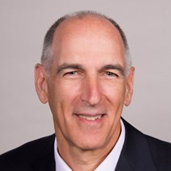

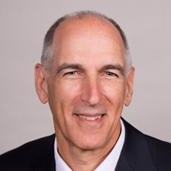 Andrew Baskin, MD, is Aetna’s Vice President, National MedicalDirector for Quality and Clinical Policy and served as the Interim Chief Medical Officer (in 2014). He works on initiatives to measure and improve quality of care, the provision of evidence based care, quality measurement implementation and public reporting, health plan accreditation, and the establishment of performance based networks. Additionally, Andy partners with others to help establish programs which create incentives for more effective and efficient care, influence and assure compliance with healthcare reform regulations, develop products to improve affordability and quality of care, and promote payment reform.
Andrew Baskin, MD, is Aetna’s Vice President, National MedicalDirector for Quality and Clinical Policy and served as the Interim Chief Medical Officer (in 2014). He works on initiatives to measure and improve quality of care, the provision of evidence based care, quality measurement implementation and public reporting, health plan accreditation, and the establishment of performance based networks. Additionally, Andy partners with others to help establish programs which create incentives for more effective and efficient care, influence and assure compliance with healthcare reform regulations, develop products to improve affordability and quality of care, and promote payment reform. Mohamed Diab, MD, Vice President of Provider Transformation leads population health management at Aetna. His focus is on providers as they transform their care delivery to achieve the “Triple Aim” by improving quality of care and reducing unnecessary cost. Mohamed has more than 25 years of experience as a provider as well as an executive in the payer and consulting industries. He has a background in medical management, pharmacy benefit management, clinical informatics and cost management programs.
Mohamed Diab, MD, Vice President of Provider Transformation leads population health management at Aetna. His focus is on providers as they transform their care delivery to achieve the “Triple Aim” by improving quality of care and reducing unnecessary cost. Mohamed has more than 25 years of experience as a provider as well as an executive in the payer and consulting industries. He has a background in medical management, pharmacy benefit management, clinical informatics and cost management programs.

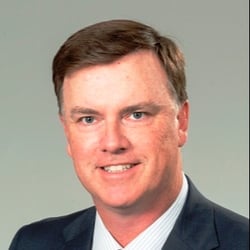

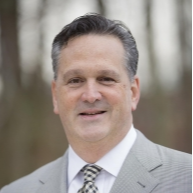

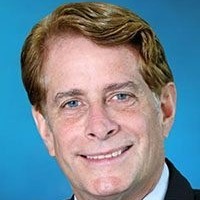

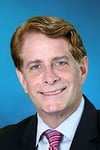 Robert C. Garrett is Co-CEO of Hackensack Meridian Health, which has four hospitals ranked among the top 10 in New Jersey according to U.S. News & World Report – including No. 1 ranked Hackensack University Medical Center - more than any other network in the state. Robert focused on aggressive expansion of the Hackensack University Network before its merger with Meridian Health. As Co-CEO, Robert concentrates on innovation and leading partnerships, including launching New Jersey’s first private medical school with Seton Hall University and a historic partnership with Memorial Sloan Kettering Cancer Center.
Robert C. Garrett is Co-CEO of Hackensack Meridian Health, which has four hospitals ranked among the top 10 in New Jersey according to U.S. News & World Report – including No. 1 ranked Hackensack University Medical Center - more than any other network in the state. Robert focused on aggressive expansion of the Hackensack University Network before its merger with Meridian Health. As Co-CEO, Robert concentrates on innovation and leading partnerships, including launching New Jersey’s first private medical school with Seton Hall University and a historic partnership with Memorial Sloan Kettering Cancer Center. John K. Lloyd is Co-CEO of Hackensack Meridian Health, one of the largest, most comprehensive health networks in New Jersey, which includes 13 hospitals, 28,000 team members, more than 6,000 physicians and over 140 patient care locations across the state. John has focused much of his career on developing a full continuum of care – long before national health care reform mandated such changes. As Co-CEO, John oversees all non-acute care hospital businesses, including population health and the foundations. John’s expertise and vision have helped the network meet and exceed the challenges of health care reform.
John K. Lloyd is Co-CEO of Hackensack Meridian Health, one of the largest, most comprehensive health networks in New Jersey, which includes 13 hospitals, 28,000 team members, more than 6,000 physicians and over 140 patient care locations across the state. John has focused much of his career on developing a full continuum of care – long before national health care reform mandated such changes. As Co-CEO, John oversees all non-acute care hospital businesses, including population health and the foundations. John’s expertise and vision have helped the network meet and exceed the challenges of health care reform. Patrick R. Young is president of Population Health for Hackensack Meridian Health, where he leads the Population Health division and is responsible for accelerating the development of strategic priorities related to health care reform; population health management; Meridian’s Medicare Shared Savings Accountable Care Organization; Hackensack Meridian Health Partners, Hackensack Meridian Health’s clinically integrated network; health insurance partnerships; as well as overseeing Managed Care.
Patrick R. Young is president of Population Health for Hackensack Meridian Health, where he leads the Population Health division and is responsible for accelerating the development of strategic priorities related to health care reform; population health management; Meridian’s Medicare Shared Savings Accountable Care Organization; Hackensack Meridian Health Partners, Hackensack Meridian Health’s clinically integrated network; health insurance partnerships; as well as overseeing Managed Care.
